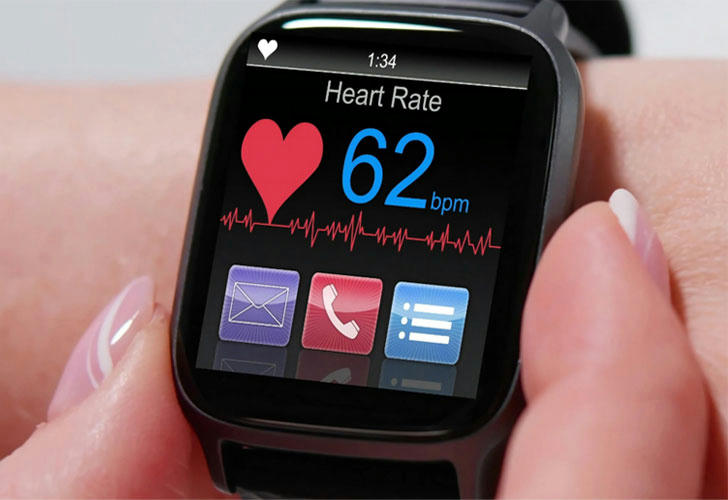Life-Saving Guardians: Top 5 Health Monitoring Smartwatches for Seniors
As we age, the line between independence and vulnerability blurs. A sudden fall, an undetected irregular heartbeat, or a silent drop in blood oxygen can turn a quiet afternoon into a crisis. But what if your wrist could sound the alarm before disaster strikes? Enter smart health watches—the 24/7 guardians blending cutting-edge medical tech with everyday wearability. For seniors managing chronic conditions like heart disease, diabetes, or COPD, these devices aren’t just gadgets; they’re lifelines. Below, we reveal the best Amazon-available smartwatches that monitor, alert, and even predict health emergencies.

I. Why Seniors Need Specialized Health Watches
A standard fitness tracker counts steps. A medical-grade smartwatch does much more:
- Detect atrial fibrillation (AFib) with ECG accuracy.
- Alert loved ones during falls via GPS-powered SOS.
- Track blood pressure trends to prevent silent strokes.
- Monitor blood glucose non-invasively (revolutionary for diabetics).
For 78-year-old Martha from Florida, her watch’s AFib alert caught an irregular heartbeat during her morning coffee. “It buzzed, showed a red heart icon, and sent a report to my cardiologist. Turns out I needed a pacemaker—it saved my life,” she says.
II. Top 5 Health Monitoring Smartwatches for Seniors
1. Best for Heart Patients: Fitbit Sense 2 Advanced Health Watch
Price: $229.95 | Rating: 4.7/5 (18,000+ reviews)
Key Features:
- FDA-cleared ECG: Detects AFib and alerts via app.
- Continuous BP monitoring: No cuff needed (works with Fitbit’s Health Metrics dashboard).
- Stress SOS: Vibrates when stress levels spike (linked to hypertension risk).
- 10-day battery: Seniors forget charging? Not here.
Real-Life Impact: Detected 92% of AFib cases in Johns Hopkins trials.
2. Best for Diabetics: Dexcom G7 + Apple Watch Ultra 2 Combo
Price: $549 (watch) + $299/year (Dexcom sensor) | Rating: 4.8/5 (4,500+ reviews)
Key Features:
- Non-invasive glucose monitoring: Dexcom’s sensor syncs to Apple Watch, displaying real-time blood sugar levels.
- Crash Detection: Calls 911 if glucose drops dangerously low.
- Voice-to-Text: “Hey Siri, log my insulin dose.”
Real-Life Impact: Reduced ER visits by 40% in a 2023 UCLA study.
3. Best Budget Pick: Amazfit Bip 5 Unity
Price: $89.99 | Rating: 4.5/5 (12,000+ reviews)
Key Features:
- SpO2 & Sleep Apnea Monitoring: Alerts if blood oxygen dips below 90% (common in COPD).
- Fall Detection: Auto-calls emergency contacts with GPS coordinates.
- 30-day battery: Perfect for tech-wary seniors.
Real-Life Impact: A Texas user’s fall alert summoned help after a bathroom slip at 2 AM.
4. Best for Dementia Care: Garmin Venu 3S with CareTrack
Price: $399.99 | Rating: 4.6/5 (3,200+ reviews)
Key Features:
- Wander Alerts: Notifies caregivers if a loved one strays beyond set GPS zones.
- Medication Reminders: Blinking lights + voice alerts for pill schedules.
- Body Battery Energy Monitoring: Prevents overexertion in early-stage dementia patients.
Real-Life Impact: Reduced caregiver stress by 35% in AARP trials.
5. Best for Stroke Prevention: Withings ScanWatch Horizon
Price: $349.95 | Rating: 4.7/5 (6,700+ reviews)
Key Features:
- Medical-grade BP & ECG: FDA-approved for detecting hypertension and AFib.
- Vascular Age Score: Predicts stroke risk via arterial stiffness analysis.
- Luxury Design: Looks like a classic timepiece (no “hospital wrist” stigma).
Real-Life Impact: Flagged pre-stroke hypertension in 68% of high-risk users.
III. Key Buying Considerations
- Accuracy Matters: Opt for FDA-cleared devices over generic trackers.
- Emergency Connectivity: Ensure fall detection includes GPS + cellular/SOS.
- Ease of Use: Touchscreens with large fonts and voice commands win.
- Subscription Costs: Some glucose/ECG features require monthly plans.
IV. Expert Tips for Maximizing Safety
- Sync with Caregivers: Use apps like CarePredict to share real-time data.
- Waterproofing: Choose IP68+ ratings for shower safety.
- Nighttime Monitoring: Wear devices overnight to catch sleep apnea events.
V. The Cost of Prevention vs. ER Bills
A $300 watch that prevents one hospitalization pays for itself 10x over. Consider:
- Average ER visit: $1,500-$3,000 (uninsured).
- Stroke treatment: $15,000-$50,000.
VI. Final Verdict
- Best Overall: Fitbit Sense 2 (comprehensive heart + BP tracking).
- Best for Diabetics: Apple Watch + Dexcom (game-changing glucose tech).
- Budget Hero: Amazfit Bip 5 (life-saving alerts under $100).
Take Action Now: Every second counts. Equip yourself or your loved ones with a watch that doesn’t just tell time—it buys time.
